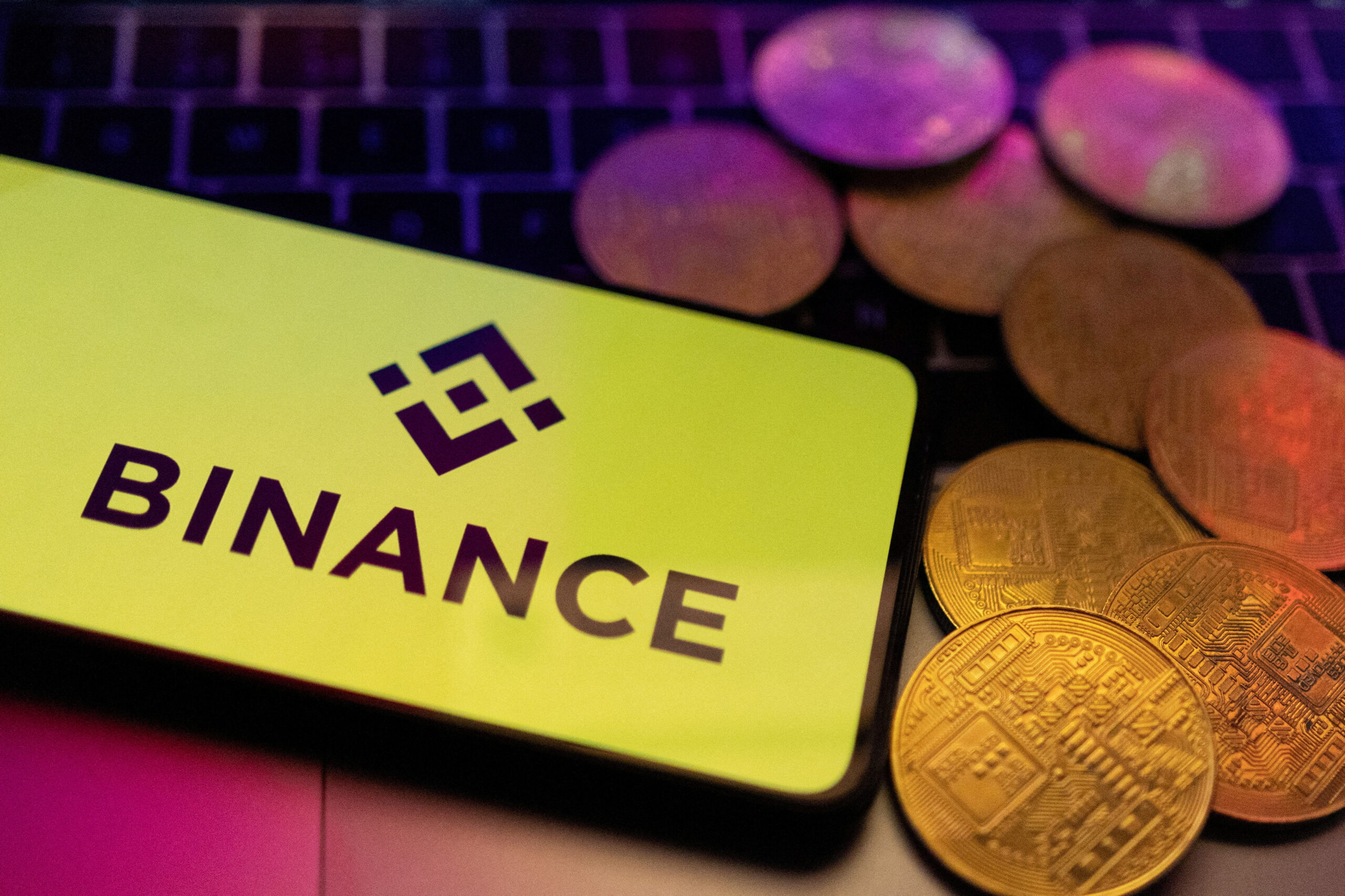
- Binance has reopened registrations and services for Belgian users after complying with regulatory requirements, marking a significant development following a three-month suspension
- The exchange redirected its services for Belgian residents through its subsidiary in Poland, demonstrating its commitment to adapting to evolving regulatory landscapes
- Binance’s proactive approach to regulatory challenges positions it to continue serving the global cryptocurrency community while ensuring long-term sustainability
Cryptocurrency exchange Binance has reopened its services in Belgium, marking a significant development three months after Belgium’s financial regulator, the Financial Services and Markets Authority (FSMA), ordered Binance to cease all cryptocurrency-related services in the country. This move comes as Binance navigates a complex regulatory landscape in various regions, adapting its services to align with evolving legal standards.
On June 23, 2023, the FSMA accused Binance of violating Belgium’s Anti-Money Laundering (AML) and Counter-Terrorism Financing (CTF) laws. The primary allegation against Binance was that it was offering cryptocurrency-related services to Belgian residents from countries outside the European Economic Area (EEA). These alleged violations prompted the FSMA to issue a directive requiring Binance to immediately halt all cryptocurrency-related services within Belgium.
This directive had several implications for Binance:
1. Immediate Cessation: Binance was compelled to cease all cryptocurrency-related services within Belgium with immediate effect.
2. Client Communication: The exchange was mandated to communicate with all its clients based in Belgium. Binance intended this communication to ensure transparency and facilitate the return of all cryptocurrency assets and private keys it held on behalf of Belgian users.
READ; Cryptocurrency: a gateway to financial freedom
The FSMA’s actions marked a crucial juncture in Binance’s journey, as it had to swiftly adapt to the regulatory landscape. Moreover, Binance responded by redirecting its services for Belgian users through Binance Poland sp. z o.o., a subsidiary registered in Poland. This strategic move allowed Binance to continue offering its services while adhering to local regulations. Binance Poland sp. z o.o. had been registered as a virtual asset service provider in January, well before the regulatory challenge in Belgium emerged.
The recent announcement by Binance regarding the reopening of registrations for Belgian residents suggests that the exchange has made the necessary adjustments or agreements to facilitate its return to the Belgian market. However, the statement did not provide specific details about the changes that enabled the resumption of services.
Moreover, this development in Belgium is part of Binance’s broader efforts to navigate and comply with evolving regulatory standards across different regions. Notably, in Europe, Binance has signaled its intention to delist stablecoins for the European market by June 2024. This decision aligns with the European Union’s forthcoming Markets in Crypto-Assets (MiCA) legislation, set to take effect in June 2024. Furthermore, MiCA legislation aims to regulate cryptocurrency-related activities and services within the EU, establishing a comprehensive framework for the industry.
READ; Cryptocurrencies in Africa: Balancing Anti money laundering ventures and financial inclusion
While Binance is making strides to adapt to regulatory changes in Europe, it has faced unique challenges in the United States. A notable development has been the departure of several executives from Binance.US, the U.S. arm of the exchange. This mass exodus has prompted industry observers to question whether internal issues are affecting the firm.
However, Binance’s CEO, Changpeng “CZ” Zhao, has consistently refuted these rumors. CZ maintains that the organization is operating as usual and that the departures do not indicate larger problems within the company. Despite the executive departures, Binance continues to serve its user base in the United States and navigate the evolving regulatory landscape.
Amid these regulatory challenges, Binance remains a prominent player in the cryptocurrency industry. With a global user base and a wide range of services, it has continued to attract traders and investors seeking access to a diverse array of digital assets. The exchange’s commitment to security, innovation, and compliance has been a driving force behind its enduring popularity.
ALSO READ: Binance Academy partners with Coursera to provide crypto classes
Looking ahead, Binance faces the task of not only complying with existing regulations but also adapting to potential changes in the regulatory landscape. The cryptocurrency space is rapidly evolving, and governments and financial authorities are working to establish clear frameworks to govern digital assets. Binance’s proactive approach in addressing regulatory concerns and cooperating with authorities in various jurisdictions underscores its commitment to long-term sustainability.
In conclusion, Binance’s decision to reopen registrations and services for Belgian users represents a positive development in its journey to navigate regulatory challenges effectively. As the cryptocurrency industry matures and regulatory clarity becomes more critical, exchanges like Binance are poised to play a pivotal role in shaping the future of digital finance. Binance’s ability to strike a balance between compliance and innovation will likely determine its continued success in serving the evolving needs of the global cryptocurrency community. With its resilience and commitment to adhering to regulatory standards, Binance remains a dynamic force in the cryptocurrency ecosystem, ready to embrace the challenges and opportunities that lie ahead.
- SEO Powered Content & PR Distribution. Get Amplified Today.
- PlatoData.Network Vertical Generative Ai. Empower Yourself. Access Here.
- PlatoAiStream. Web3 Intelligence. Knowledge Amplified. Access Here.
- PlatoESG. Carbon, CleanTech, Energy, Environment, Solar, Waste Management. Access Here.
- PlatoHealth. Biotech and Clinical Trials Intelligence. Access Here.
- Source: https://web3africa.news/2023/09/27/news/crypto-exchange-binance-reopens-in-belgium-after-suspension/
- :has
- :is
- :not
- 14
- 2023
- 2024
- 23
- 9
- a
- ability
- About
- Academy
- access
- accused
- across
- actions
- activities
- adapt
- addressing
- adhering
- adjustments
- affecting
- africa
- After
- against
- agreements
- ahead
- aims
- align
- Aligns
- All
- alleged
- allowed
- also
- AML
- and
- Announcement
- anti-money laundering
- approach
- ARE
- AREA
- ARM
- Array
- AS
- asset
- Assets
- attract
- Authorities
- authority
- Balance
- balancing
- base
- based
- becomes
- been
- before
- behalf
- behind
- Belgium
- between
- binance
- BINANCE.US
- broader
- but
- by
- cease
- ceo
- challenge
- challenges
- Changes
- Changpeng
- clarity
- clear
- client
- clients
- comes
- commitment
- communicate
- Communication
- community
- company
- compelled
- complex
- compliance
- comply
- comprehensive
- Concerns
- conclusion
- consistently
- continue
- continued
- continues
- cooperating
- countries
- country
- critical
- crucial
- crypto
- crypto exchange
- Crypto Exchange Binance
- crypto-assets
- cryptocurrency
- Cryptocurrency Assets
- cryptocurrency ecosystem
- Cryptocurrency Industry
- CZ
- Dark
- decision
- demonstrating
- departures
- Despite
- details
- Determine
- Development
- DID
- different
- digital
- Digital Assets
- Digital Finance
- diverse
- do
- driving
- dynamic
- Economic
- ecosystem
- effect
- effectively
- efforts
- embrace
- emerged
- enabled
- enduring
- ensure
- ensuring
- establish
- establishing
- EU
- Europe
- European
- evolving
- exchange
- Exchanges
- executive
- executives
- existing
- Exodus
- faced
- faces
- facilitate
- finance
- financial
- financial services
- financing
- Firm
- following
- For
- Force
- forthcoming
- Framework
- frameworks
- from
- fsma
- Furthermore
- future
- gateway
- Global
- Governments
- Group
- had
- Held
- However
- HTTPS
- immediate
- immediately
- implications
- in
- indicate
- industry
- Innovation
- intended
- Intention
- internal
- Investors
- issue
- issues
- IT
- ITS
- January
- journey
- jpg
- june
- jurisdictions
- keys
- landscape
- larger
- Laundering
- Laws
- Legal
- Legislation
- LG
- lie
- like
- likely
- local
- long-term
- made
- maintains
- Making
- marked
- Market
- Markets
- marking
- Mass
- matures
- MiCA
- money
- Money Laundering
- months
- more
- Moreover
- move
- Navigate
- necessary
- needs
- notable
- notably
- observers
- of
- offering
- on
- only
- operating
- opportunities
- or
- organization
- outside
- part
- partners
- pivotal
- plato
- Plato Data Intelligence
- PlatoData
- Play
- player
- poised
- Poland
- popularity
- positions
- positive
- potential
- primary
- private
- Private Keys
- Proactive
- problems
- prominent
- provide
- provider
- question
- range
- rapidly
- Read
- ready
- recent
- regarding
- regions
- registered
- Regulate
- regulations
- regulator
- regulatory
- regulatory landscape
- relative
- remains
- reopen
- represents
- Requirements
- residents
- resilience
- return
- Role
- Rumors
- s
- security
- seeking
- serve
- service
- Service Provider
- Services
- serving
- set
- several
- shaping
- significant
- Space
- specific
- Stablecoins
- standards
- Statement
- States
- Strategic
- strides
- strike
- subsidiary
- success
- Suggests
- suspension
- Sustainability
- swiftly
- Take
- Task
- that
- The
- The Future
- These
- this
- three
- Through
- to
- Traders
- Transparency
- u.s.
- underscores
- unique
- United
- United States
- us
- User
- users
- various
- Ventures
- Violating
- Violations
- Virtual
- virtual asset
- Virtual Asset Service Provider
- was
- WELL
- whether
- while
- wide
- Wide range
- will
- with
- within
- working
- zephyrnet
- Zhao













